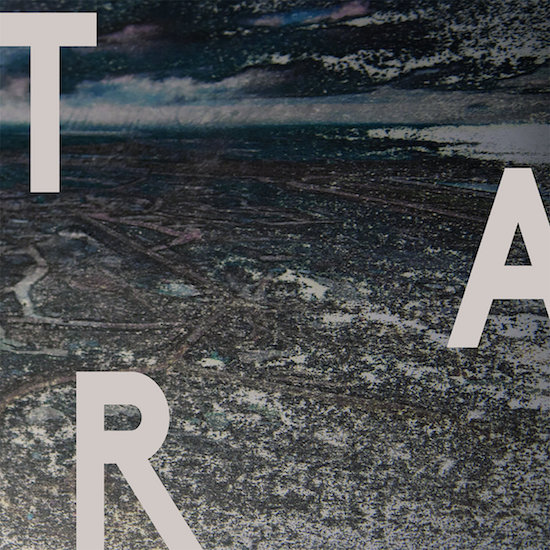Always immersive in its layering, on previous recordings and in the realm of live performance, the music of the Iranian ambient musician Siavash Amini has consistently provided room for reflection through creation of space – set between both buoyant and melancholic planes of noise in amicable juxtaposition. His is a sound with a penchant for dreamlike synth-scapes, executed with finesse and an ear for drawing out from the void and building upon a particular kind of elysian beauty.
With the release of TAR, his latest and most complex work to date, however, Amini has changed trajectory in a way that is startling not for its abruptness but for its subtlety — for the effect created by the slightest of deviations. Replacing reflection with representation, TAR is a record designed less for introspection than previous releases, geared far more toward addressing the state of things in our current cultural, political and environmental climate — acknowledging their inherent inseparability.
With tinges of Pharmakon and Earth, Amini appears to take his cues this time from noise and drone rather than purely from the ambient world — manifest perhaps most acutely in the presence of static across the record: a hissing to which the ear is drawn, not by volume but by an omnipresence impossible to ignore. As a device it is simultaneously indicative of both something and nothing — residual cosmic radiation, impossible to decode, representative at once of the insatiable perpetual motion of contemporary life, its lasting impact on our environment, and the futility of all that sound and fury on a universal scale. Sonically, too, it is overwhelming without resorting to brute force — and considerably more affecting for it.
In tandem to this, there is a also a sense of something like melting that runs consistently through TAR — particularly on its namesake track, ‘Rivers of Tar’, where swells, strings and a kind of ticking, near-percussive synthesiser drone combine to create the unsettling feel of a steady drip. There is a peculiar uncanniness about the track, too, where in both its instrumentation and its timbre it seems to blur the lines between the natural and artificial worlds —a kind of push and pull, as inferred by the title, suggesting that the things we desire the most are the things we most often destroy. And which are likely to return that favour in kind.
On ‘Face on the Sand’ Amini utilises synthesiser sounds and distant metallic knocks that conjure the image — the idea; the feeling — of sheer winds ripping across a sprawling and vacant landscape: you need only check the track’s title to pick up on its reference to the most basic and most futile of human needs — the drive to leave a lasting mark beyond the parameters of life in both the individual and collective senses — but in its textures Amini has created a jarring projection of self-fulfilling prophecy. An endless, timeless, desert for which we are all to blame.
Equally true to its titling, ‘The Dust We Breathe’ is both euphoric and claustrophobic — a kind of sonic interpretation of the stages of suffocation — which, in its soars and swells, is easy to mistake at first for optimism. But this is unmistakably a warning: the joy is oppressive, the release beckoning, siren-like, with too kind a face. This is the Zero Hour of Margaret Atwood’s Oryx and Crake. The “last midnight” of Nic Pizzolatto’s True Detective. An overwhelming desire to walk knowingly off the cliff edge with a warm and distant kind of love in our hearts. An invitation too rapturous to decline.
Placed within the continuum of contemporary music, it is perhaps easiest to draw parallels — both conceptually and sonically — between TAR and either J.G. Biberkopf’s Ecologies or Pharmakon’s Contact, possibly even viewing them as a triptych of sorts, exploring similar issues of consciousness in the face of impending disaster on variously micro and macro scales. Where Margaret Chardiet’s Pharmakon is a treatise on the inevitable human push towards death and the unnecessary pain of our refusal to accept it, or where Biberkopf abstractly considers the environmental implications of entering the Anthropocene, however, Amini meets his sonic peers at the halfway point.
TAR, then, is perhaps the most startling expression of our psychological and meteorological predicament in recent years, tackling head on both the wider implications of our failed supremacy as a species and the internalisation of those shortcomings — a reminder that we are forever surrounded by staggering beauty and profundity, but that, inevitably, poison begets poison.


